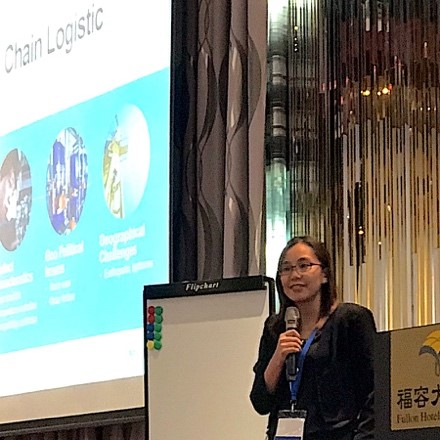At the recently concluded TECHCET Critical Materials Council (CMC) Seminar in Taoyuan, Taiwan, a diverse gathering of industry experts discussed materials value-chain topics including quality issues, logistics best practices, and geopolitical disruptions. Seminar participants included individuals from device makers, material suppliers, and equipment and component providers from China, Europe, Japan, South Korea, Taiwan, and the U.S.
The keynote presentation by Mr. K. C. Hsu, Vice President of Micron Memory Taiwan, highlighted that, “data is today’s global currency,” and this is especially pertinent in high volume manufacturing (HVM). Data and information sharing along the materials supply-chain will allow semiconductor fabs to de-bottleneck supply and logistic issues. Early detection of materials quality and variability is critical to protect fab lines from yield excursions. As an example, Linde Electronics presented a thorough approach for de-bottlenecking the bulk specialty gas supply-chain from gas production through delivery to consumption in the fab.

As shown in The Figure, Ms. Jenny Tan, Sr. Manager for Global Procurement of Micron Technology, presented on “Challenges of Global Supply Chains” during the public CMC seminar. With HVM IC lines in the U.S., Japan, Singapore, and Taiwan to make commercial memory chips for the world, Micron Technology has to keep up the quality of critical materials sourced from both global and local suppliers. Seminar attendees also enjoyed presentations from Industrial Technology Research Institute (ITRI Taiwan), Pall Corp., United Silicon Innovation Corp., Air Liquide, ST Microelectronics, Lam Research Corp., and TECHCET analysts. Private discussions during coffee-breaks allowed attendees to network with industry experts.
Private Face-to-Face Meetings
Hosted by Micron Taiwan, the 2019 Fall CMC Fab Members private meeting occurred October 15-16. In addition to materials suppliers, representatives of the following semiconductor fabs attended this powerful meeting: Broadcom, Cypress, GlobalFoundries, Infineon, Intel, Micron, Nexperia, OnSemiconductor, Samsung, Sony, ST Microelectronics, TSMC, Texas Instruments, and TowerJazz Panasonic.
Topics discussed included trends influencing helium pricing, timely notification of materials end-of-life, and best practice to support growth of new suppliers. Fabs need more insights into sub-tier suppliers to avoid disruption and quality issues, and they typically do not talk directly with sub-tiers but expect direct suppliers to be in charge of communications. CMC members are seeing new Chinese suppliers approaching fabs directly, and this is an opportunity to develop improved protocols for assessing risk.
The afternoon of October 16th featured a joint session with Fab members and Supplier members talking about “The Hidden Cost of Supply Chain Disruption.” Much of the discussion in this session circled around the current geopolitical environment adding uncertainty and instability to the already stressed supply-chain. While trade disputes rage between national governments with no end in sight, commercial semiconductor fabs must keep shipping chips to keep our modern world working.
